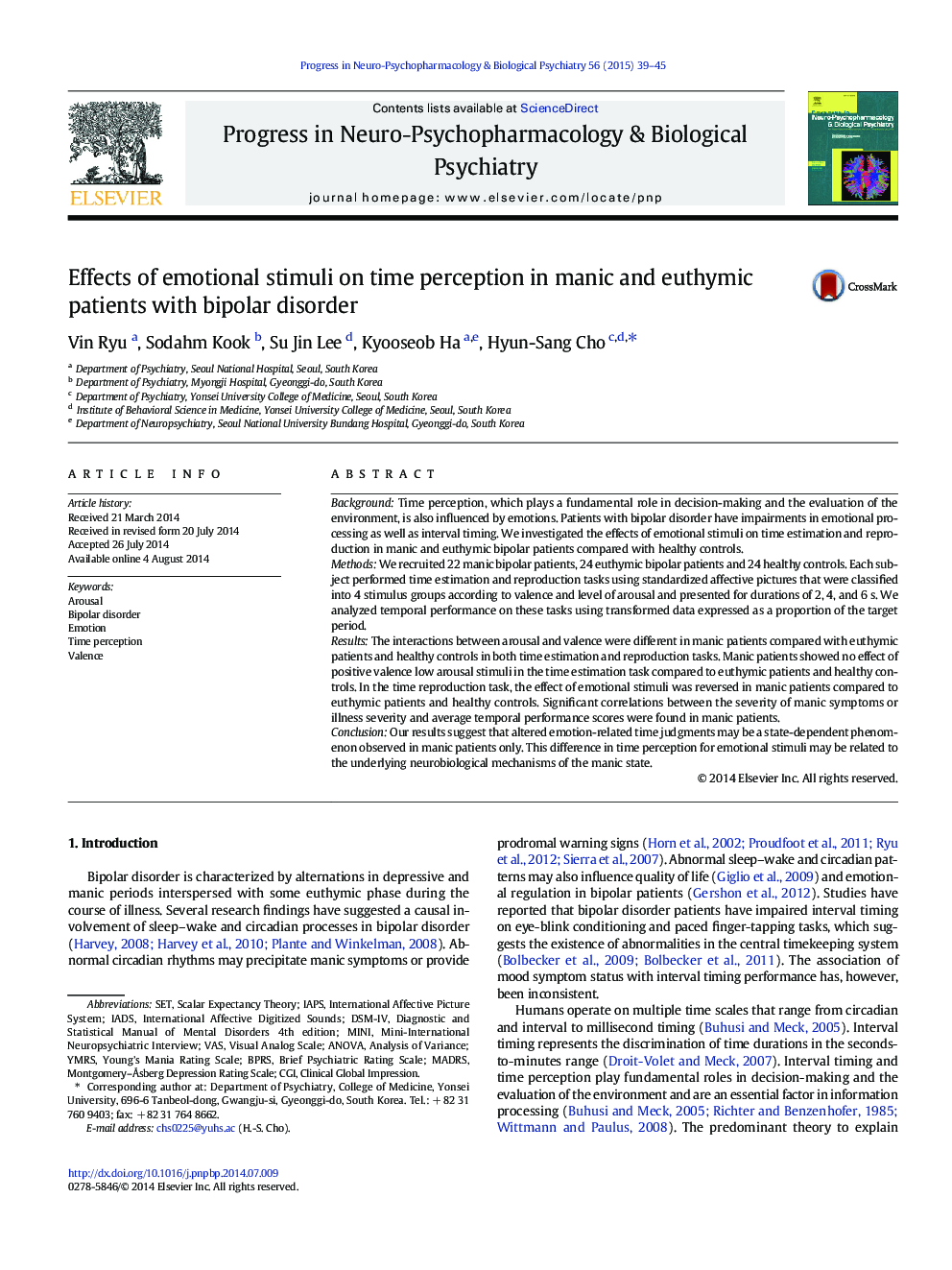| Article ID | Journal | Published Year | Pages | File Type |
|---|---|---|---|---|
| 2564792 | Progress in Neuro-Psychopharmacology and Biological Psychiatry | 2015 | 7 Pages |
•We investigated the emotional effect on time perception in bipolar patients.•Manic patients underestimated for positive-low arousal stimuli.•In manic patients, emotional effect is reversed in the time reproduction.•Emotional time judgments in euthymic status may return to normal pattern.
BackgroundTime perception, which plays a fundamental role in decision-making and the evaluation of the environment, is also influenced by emotions. Patients with bipolar disorder have impairments in emotional processing as well as interval timing. We investigated the effects of emotional stimuli on time estimation and reproduction in manic and euthymic bipolar patients compared with healthy controls.MethodsWe recruited 22 manic bipolar patients, 24 euthymic bipolar patients and 24 healthy controls. Each subject performed time estimation and reproduction tasks using standardized affective pictures that were classified into 4 stimulus groups according to valence and level of arousal and presented for durations of 2, 4, and 6 s. We analyzed temporal performance on these tasks using transformed data expressed as a proportion of the target period.ResultsThe interactions between arousal and valence were different in manic patients compared with euthymic patients and healthy controls in both time estimation and reproduction tasks. Manic patients showed no effect of positive valence low arousal stimuli in the time estimation task compared to euthymic patients and healthy controls. In the time reproduction task, the effect of emotional stimuli was reversed in manic patients compared to euthymic patients and healthy controls. Significant correlations between the severity of manic symptoms or illness severity and average temporal performance scores were found in manic patients.ConclusionOur results suggest that altered emotion-related time judgments may be a state-dependent phenomenon observed in manic patients only. This difference in time perception for emotional stimuli may be related to the underlying neurobiological mechanisms of the manic state.
Graphical abstractFigure optionsDownload full-size imageDownload as PowerPoint slide
